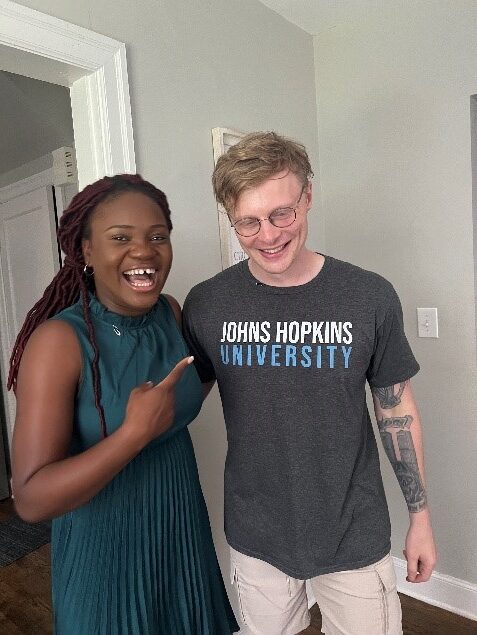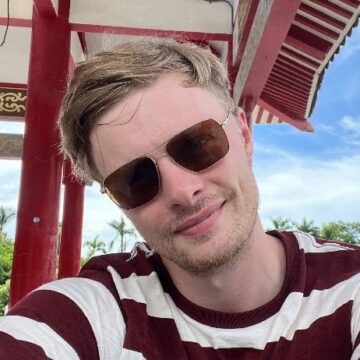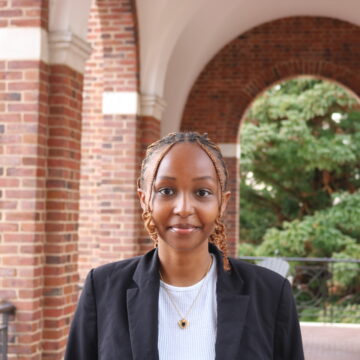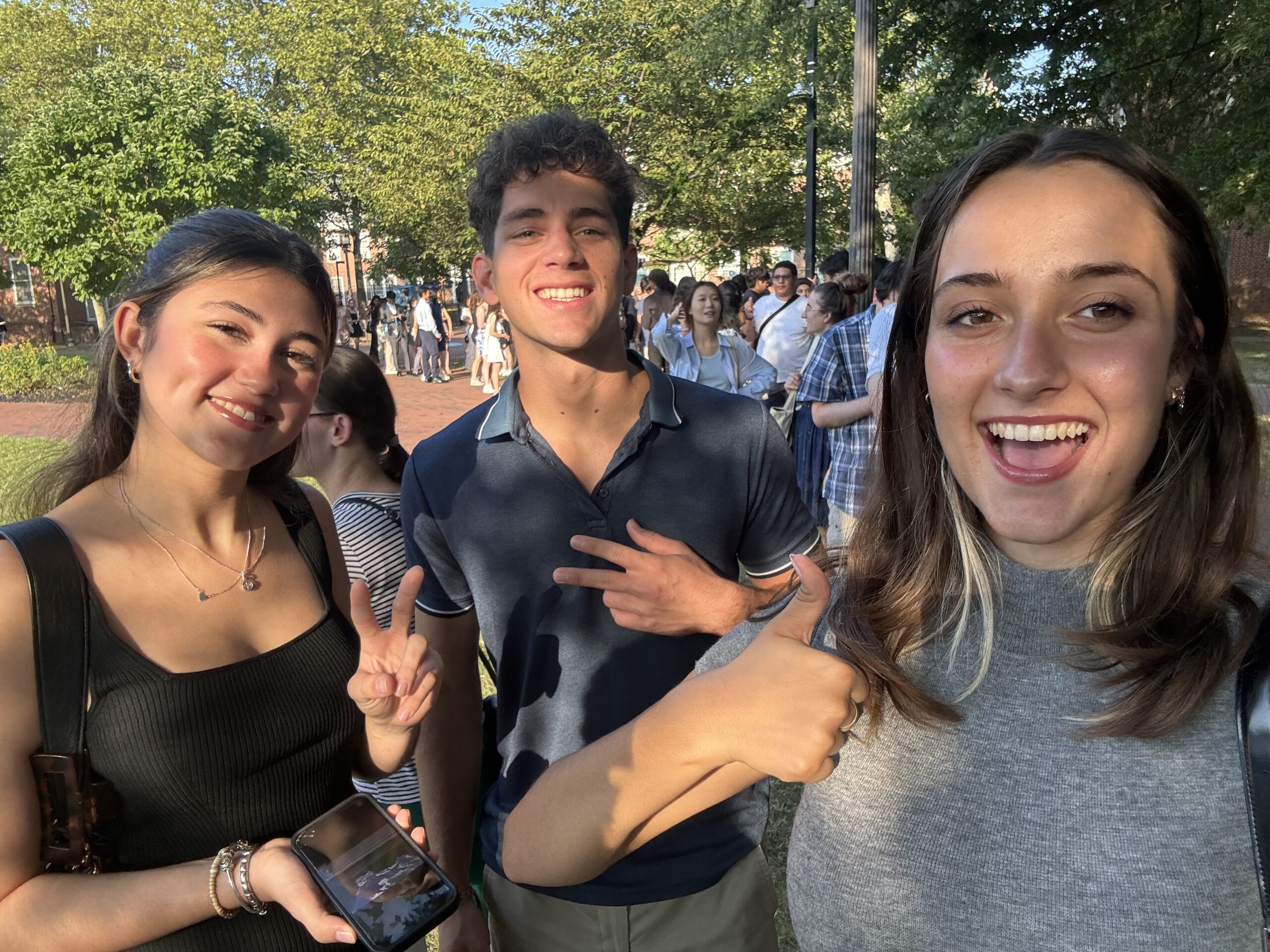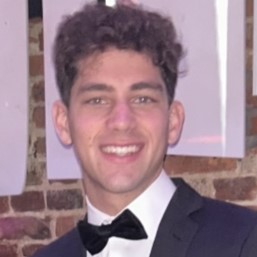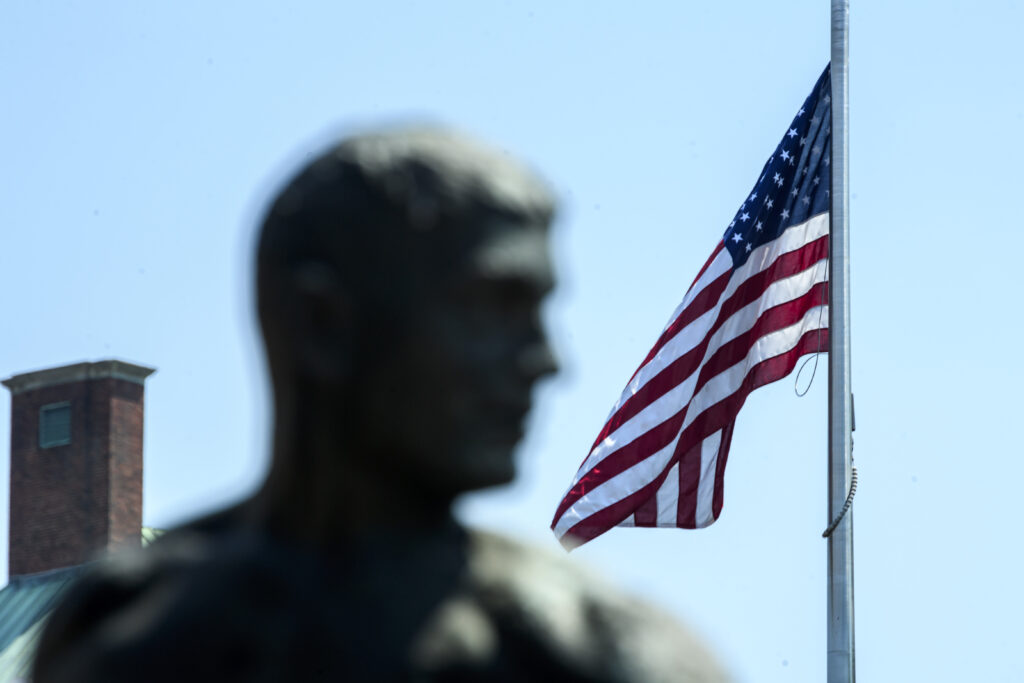
This transcript has been edited for clarity and brevity.
Can you tell us a little about yourself?
I spent the first six years of my life in Australia, then we came to the States. I’ve been in the Maryland/DC area ever since. I went to Baltimore City College [for high school] right down the street from Hopkins. Following high school, I took a gap year and then I started community college for the first two years, then I transferred to Hopkins.
How did you learn about the military? Did you do self-research or were there career fairs or recruitment officers you talked to during high school?
I never really thought about the military until I hit college. It never seemed like the thing for me. In fact, most people were surprised that I ended up going down that path. I wasn’t sure what I wanted to do when it came to the military, and I was driving past the Army National Guard recruiting office in Towson. I pulled in and said no one in my family’s ever been in the military, and then I spent the next two hours there.
How did you make the leap to Hopkins?
Hopkins has an amazing Army ROTC program to become an officer, and their political science department is very, very good. I mean, the [Maryland] governor went to Hopkins. Coupled with its reputation and proximity [to Washington, DC], it seemed like the best option. It was really the first place I thought of.
Did you get to interact a lot with students from other universities?
Oh, absolutely. My year had at least 15 other students from outside universities, and you’re with them for all four years.
What is ROTC?
It’s a three-credit [elective] class you take every semester for four years. They train future officers for the United States Army. It’s a four-year officer program that goes through all the strengths of how to be a leader because you’re going to start leading a unit once you’re commissioned as an officer. You have to be able to know how to not only become a good soldier, but also become a good leader. Because you have people from all over the world with different backgrounds and cultures, you have to be able to navigate that in making a cohesive unit.
How did ROTC impact your coursework as a political science major? Were you still able to have a “regular” college experience?
You can have a regular college experience. I worked throughout, so I was always driving to and from DC. I would say it’s something that enhances [the college experience]. Most classes you take, you see [your classmates] for one semester, and then you never see the students again in class. These are kids that you’re going to be in class with for four years straight, and you see them a minimum of four times a week. You’re going to get to know them very well.
That sounds like it makes it easier to find community.
Oh, absolutely. ROTC isn’t major based. There’s not like, “Oh, ROTC kids tend to be this major or that major.” You find different groups of kids in different areas. We [even] had kids who were on the football team.
How has your military background shaped your time here?
The military is all about discipline. That comes in handy when you have to create a schedule, be up early, and work through all your assignments. Or if you have a job at the same time, it’s managing everything at once. It requires an extreme amount of discipline.
What advice would you give other veterans or service members considering Hopkins?
Make connections with everyone quickly because those are invaluable. My first week, I got an email from a staff member who was a former veteran that said, “If you have any questions, reach out to ROTC even if you have no plans on becoming part of the program because the ROTC program is still full of soldiers.” If you have issues with educational benefits, or you need to get in touch with the VA, those are all people that have firsthand context. Those connections were very useful very quickly.
Or even if you just want someone to talk to and someone who can relate to what you have just been through in the military—those [ROTC members] are the people to talk to.
Did you explore some of the non-military resources on campus?
I do have to say that, having two other siblings in college, my advisors are amazing [in comparison]. They’re very, very good. They anticipate problems you can have and already solve them for you. We were taught in high school there’s no hand holding in college—you have to figure everything out on your own. It’s not entirely true. Those advisors are very good at knowing what the problems can be. Sometimes, I’ll get emails like, “Hey, do you know about such and such going on? Have you thought about this?” I needed seven classes to graduate at the end of the semester, and I was only enrolled in six because I dropped one. My advisor sent me eight different recommendations of classes I could take outside of Hopkins to complete the graduation requirement.
How did your advisor help you balance your military commitments, for instance, when putting together your class schedule?
Fridays, Saturdays, and Sundays were my military commitments, so [my advisor] helped me choose classes where I got Friday off or late Monday classes so I could have more time to do work. They knew what to expect. They’re very good at figuring things out. I have a very good college schedule right now.
What are your goals as you’re finishing up your time at Hopkins?
I would like to be a corporate white-collar defense attorney for Sullivan & Cromwell. I’m taking a year off, but then I’m going to law school. I’m going to spend the summer studying for the LSAT and then applications open in the fall.
What is a quote or motto that inspires you?
“I don’t have dreams, I have goals” – Harvey Specter.
I always say eye on the ball. You’ve got to keep your eyes focused on what you want, and actually go in and do it. A lot of people have dreams—it’s great. But you have to have a plan in place to go do it. To me, it’s I know what I want. I’m focusing on it and actually doing it.
For more information on Hopkins ROTC, visit their website or follow them on Instagram @johns_hopkins_army_rotc.
